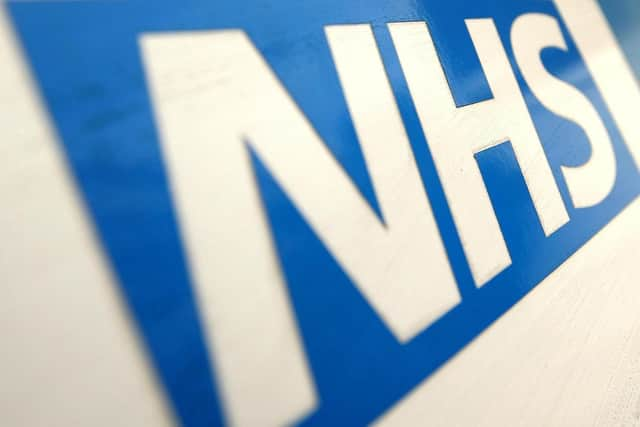How the NHS can be more proactive rather than reactive when it comes to health - Matthew Taylor
The first was a much-shared video of a nurse in an A&E department telling the overcrowded waiting room they would have to wait several hours to be seen and that, anyway, there were no free beds in the hospital.
The other was a news item from America heralding what appears to be a major breakthrough in the treatment of that most unforgiving of diseases, pancreatic cancer.
Advertisement
Hide AdAdvertisement
Hide AdAs I said in the completed speech, the question for the health service is how we build a bridge from the grim situation of overwhelming demand and overstretched capacity in which we find ourselves, to the dramatically better future we can glimpse on the horizon.


That future has many aspects, but perhaps the most revolutionary would be a shift from our current model of care, in which we wait to be ill to seek treatment, to one in which genetic profiling and the continual monitoring of our health enables us to prevent most illnesses before they even show symptoms.
So, what is needed for our health system to move from being reactive to proactive, from trying to treat to succeeding in preventing?
First, we have to learn the lessons of the recent past. The feast and famine funding of the NHS has been disastrous. The near decade of austerity from 2010 saw health spending increase at around half the average rate since its creation and less than half the rate most health economists say is necessary to meet the demands of rising public expectations, expensive forms of treatment, and population ageing.
Advertisement
Hide AdAdvertisement
Hide AdThis meant the NHS went into the Covid-19 pandemic with around 100,000 staff vacancies and a crumbling estate. The NHS spends around a third less incapital less per staff member compared with the OECD average.
In the medium term, health spending can level off as a proportion of national income, but we need to be realistic about meeting the current capacity challenge, preparing, for example, for the fact that in a decade a third more of us will be entering the last – generally most health care intensive - year of our lives. We also need to see health through a wider lens, seeing the links with inclusion and prosperity. Our economy is suffering from widespread labour shortages, with ill health and caring responsibilities being the single biggest reason for working age adults to be out of the labour market. And to make matters worse, the sector hit hardest when labour is short is care. Conversely, our system and our best hospitals are still respected around the world, and health care is one of the world’s fastest growing marketplaces.
But, of course, money must be matched by reform. At its best the NHS is making good use of digital tools and services, is at the cutting edge of cancer treatment, and is developing new models of care like virtual wards. However, performance is still patchy, and the NHS relies too much on hierarchical models of command and control to drive improvement.
Unusually for major health reform, the recent NHS and Care Act had wide support across the system. The case for greater collaboration both within the NHS and with partners, particularly local government, is widely accepted. The experience of Covid-19 has led to a much deeper understanding of health inequalities and a shared commitment to tackle the factors that drive them. If they operate effectively, and are given the time and the freedom to be responsive to local needs, the 42 new Integrated Care Systems across England can achieve the big shifts the health service has long discussed.
Advertisement
Hide AdAdvertisement
Hide AdIn the face of problems like long waiting lists and the difficulties of primary care access, public confidence in the NHS is at a historic low. There is talk on the Conservative right that the NHS is a bottomless pit, obsessed by wokery and staffed by ‘feckless’ managers. Instead, we need a mobilising vision of the completely different future model of health care, one in which what is in reality a National Sickness Service actually lives up to its proud name, and in which each of us are in control of how we avoid illness and thrive mentally and physically. Getting to that future from where we are now requires realism and determination. But surely, instead of perpetual crisis management, it is time for the health service policy to build a bridge to the future?
-This article first appeared in Bright Blue’s Centre Write magazine, the independent think tank for liberal-conservatism.
Matthew Taylor is a former chief adviser on political strategy to the PM and current chief executive of the NHS Confederation.
Comment Guidelines
National World encourages reader discussion on our stories. User feedback, insights and back-and-forth exchanges add a rich layer of context to reporting. Please review our Community Guidelines before commenting.